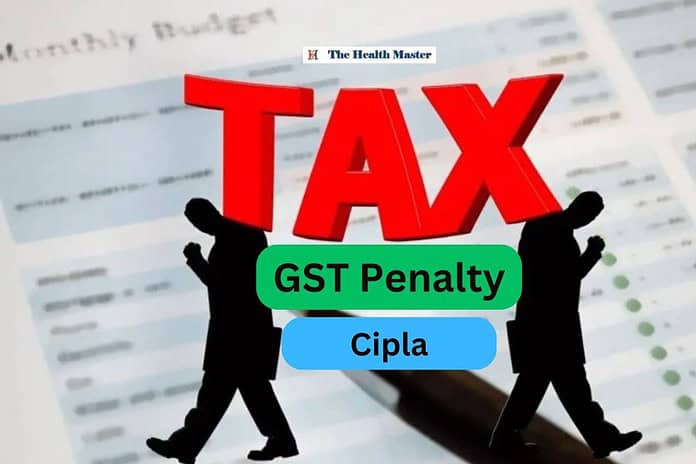Last Updated on January 1, 2025 by The Health Master
GST Penalty
Pharmaceutical giant Cipla Limited recently faced a significant setback with the imposition of a hefty Rs 1.11 crore GST penalty by the Goods and Services Tax (GST) authority.
The GST penalty stems from allegations of inadmissible input tax credit claims made by the company.
This development has sparked concerns within the pharmaceutical industry and highlights the importance of meticulous GST compliance.
Understanding the Issue
What is Inadmissible Credit?
Input Tax Credit (ITC) is a crucial mechanism under GST that allows businesses to offset the taxes paid on their inputs against the output tax they owe on their sales.
However, ITC can only be claimed for eligible goods and services.
Inadmissible credit refers to the claim of ITC on goods or services that are not eligible for such credit under the GST Act.
Cipla’s Case
The GST authority determined that Cipla had claimed ITC on certain transactions that were not permissible under the relevant provisions of the GST Act.
Specifically, the order focused on the company’s claims related to “TRAN-1 credit,” a mechanism for claiming ITC on inputs received before the implementation of GST.
Cipla’s Response
Dispute and Appeal
Cipla has strongly contested the GST penalty, deeming it arbitrary and unjustified.
The company maintains that its claims were legitimate and within the bounds of the law.
To challenge the order, Cipla has announced its intention to file necessary appeals with the relevant appellate authority.
Minimal Financial Impact
Despite the significant GST penalty amount, Cipla has clarified that the order will have no material impact on its overall financial performance or business operations.
Key Takeaways
- This case serves as a crucial reminder for businesses to ensure strict adherence to GST regulations, particularly concerning ITC claims.
- Careful scrutiny of input purchases and meticulous record-keeping are essential to avoid such GST penalties.
- Businesses should proactively seek professional guidance to navigate the complexities of GST and ensure compliance.
-
What is GST?
GST stands for Goods and Services Tax. It is a comprehensive indirect tax levied on the supply of goods and services within India.
-
What is TRAN-1 credit?
TRAN-1 is a one-time return filed by businesses to claim ITC on inputs held in stock as on the date of GST implementation.
-
What are the potential consequences of claiming inadmissible credit?
Consequences can include:
Denial of ITC claims
Imposition of GST penalties
Interest charges
Potential legal action
Disclaimer: This article contains information derived from the source mentioned below. Our team utilized an AI language model to rewrite and present the news or article in a unique format.
Disclaimer: This article is for informational purposes only and does not constitute legal or tax advice.
Aurobindo Pharma Faces Rs 11 Crore GST Demand
DPCO 2013: Form 2, 4 & 5 amended to add details including GST rate
FSSAI regulations on use of Methylcobalamin in Supplements
FOPE demands inclusion of Sensitive drugs in Schedule P
Parliamentary Panel demands swift action on Spurious Drugs
Forms: For Homoeopathy Medicines
Key Notes on Revised Schedule M: Point No. 12 – Premises
Naloxone: The Lifesaver You Need to Know About
Indian Pharma Market growth: To Reach Rs 2.38 Lakh Crore by 2025
Chemists demand reversal of Door Step Delivery Order
Over the Counter (OTC) Drug Revolution: New List Coming Soon
NPPA revised Ceiling price of 13 scheduled formulations: December 2024








